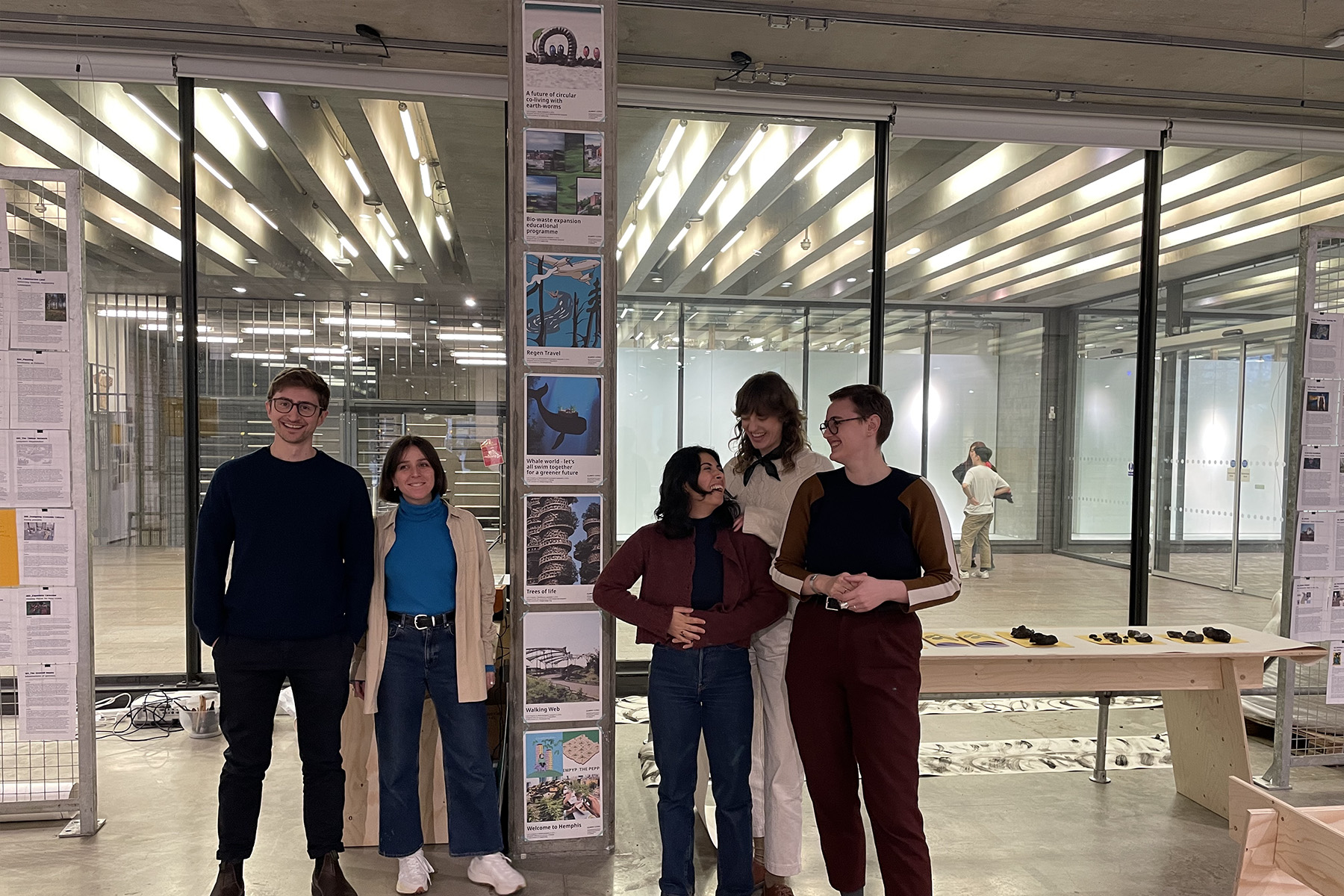
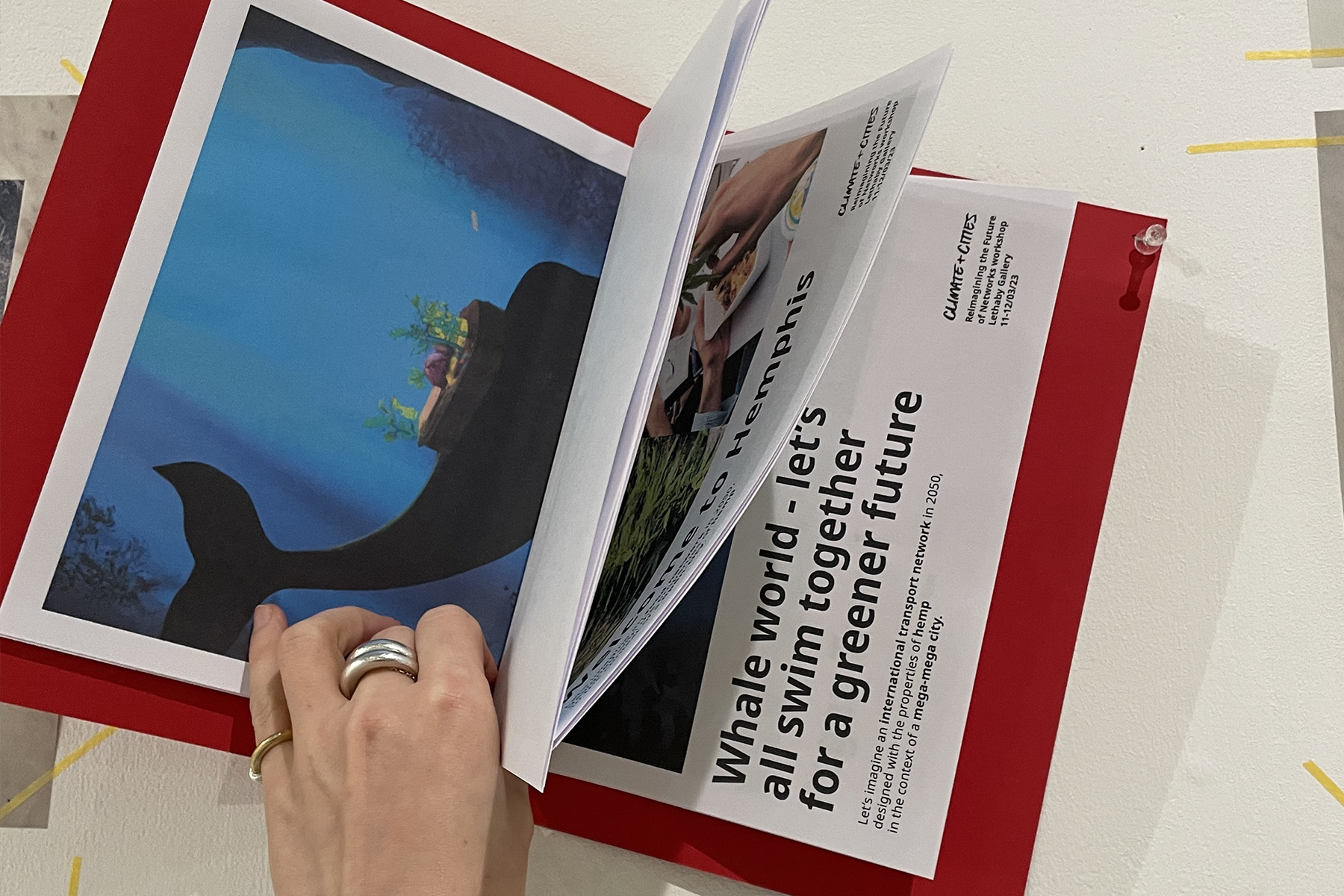
photography by nicolee tsin
Materiality of Networks: exploring the past, present and future of King’s Cross
Our world is connected by ephemeral networks more than ever before, but what powers do these networks hold? Is the information age greener than the coal-powered industrial age? And what will our future networks look like and be made of?
Exploring the materiality of networks, we used the Lethaby Gallery as a site for live research, discussion and reimagining.
Context: Architecture is Climate
We were invited by Mould Collective to take over the Lethaby Gallery for two days as part of their exhibition ‘Architecture is Climate’, running for two weeks in March 2023.We decided to use this opportunity to explore a new research and design concept, inspired by the rich history and recent developments of the site surrounding the gallery. When doing research on King’s Cross, it quickly became evident that from the industrial revolution of the 1850s, to the present day information age, the area represents how the nature of connection and networks have evolved through time. For the exhibition, we decided to explore the history of this past hub of coal and steel, turned home to some of the world’s biggest tech companies as well as to attempt to answer the question: what comes next?
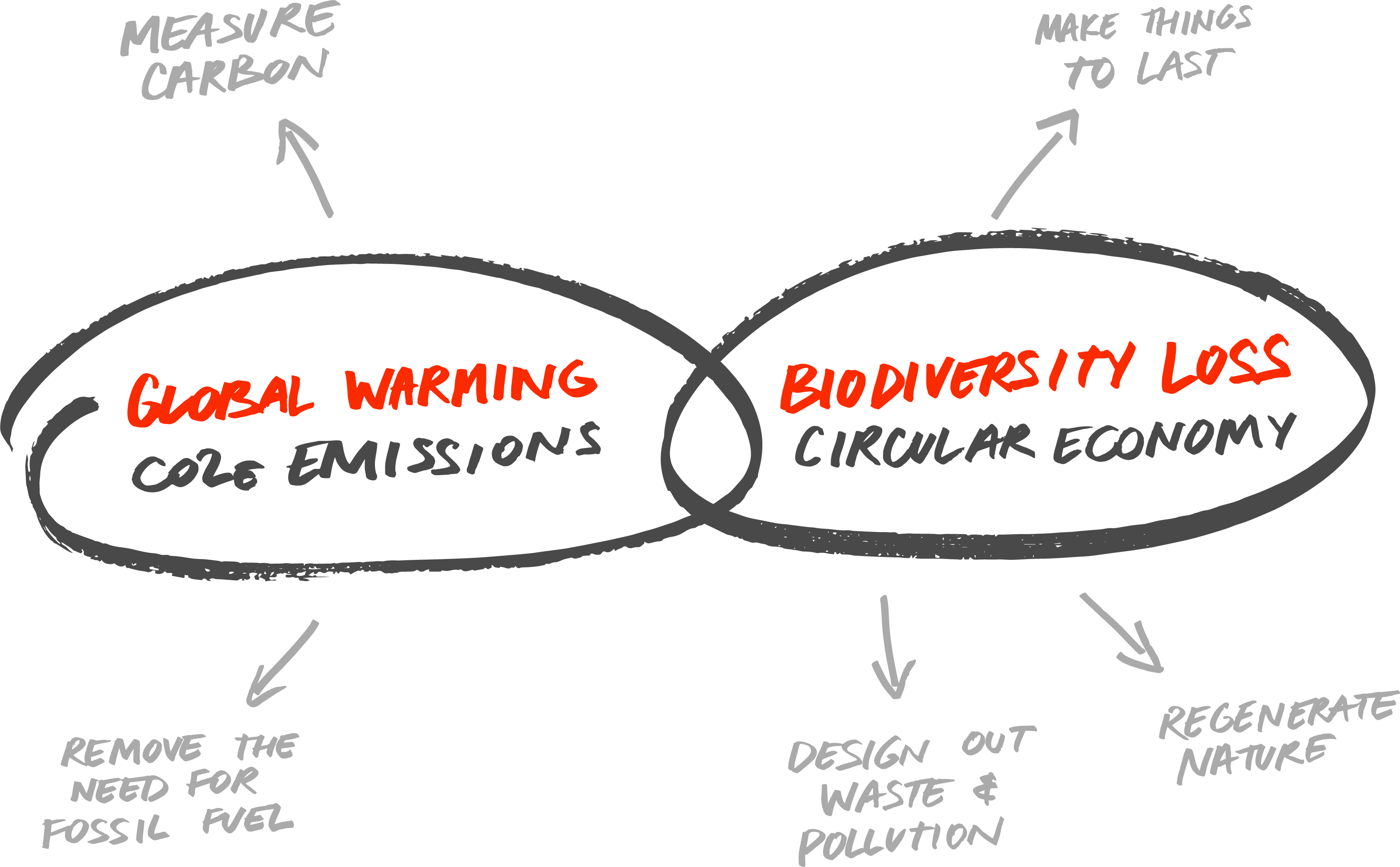
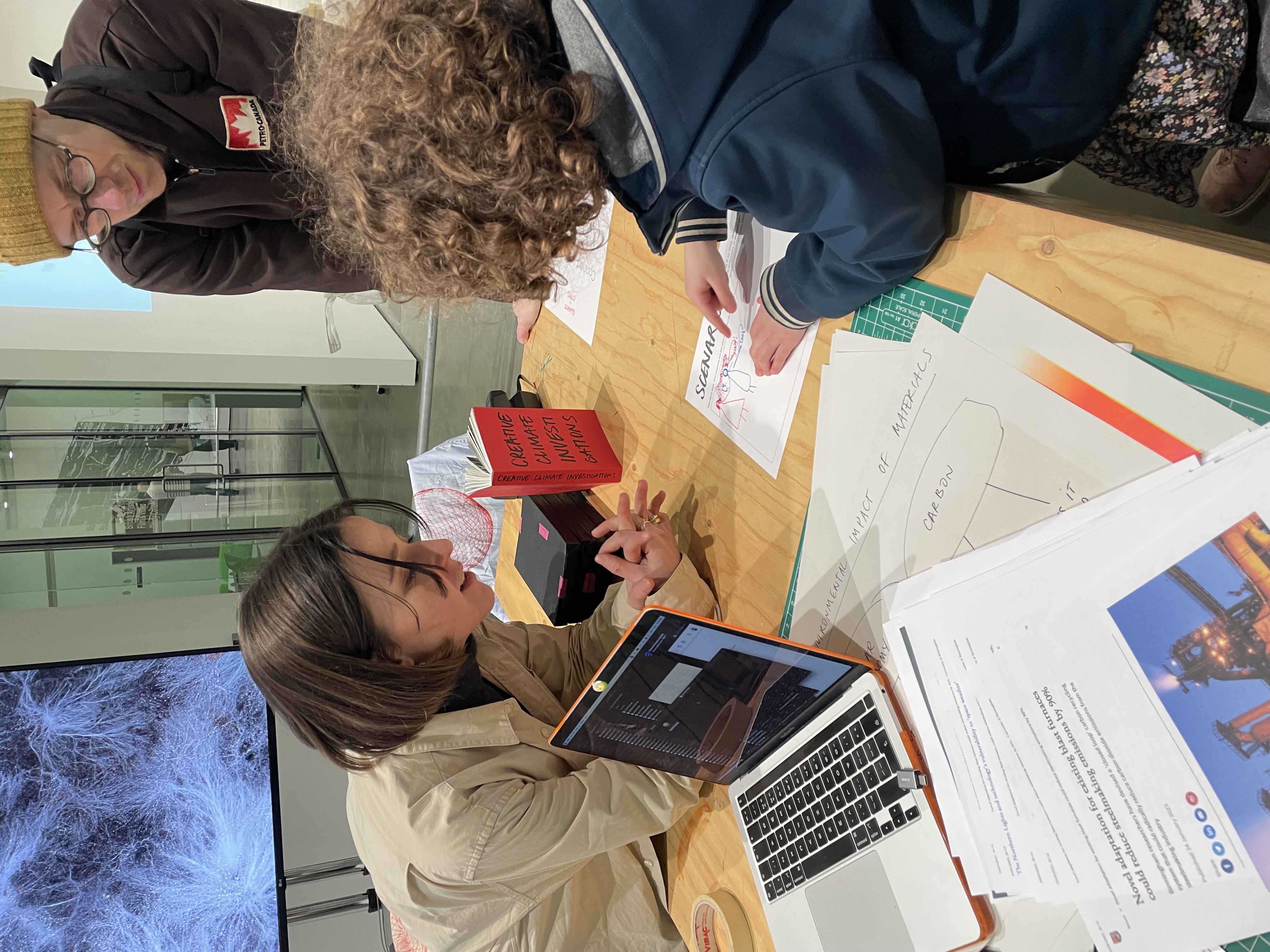
Materiality of Networks: Live Research and Discussion
To present our research into the Past and Present of networks in King’s Cross, we decided to set up a live research lab in the gallery space, with researchers present at all times to share their findings and to answer any questions the public might have.During the two days, it was important for us to create a space to have open discussions on the materials used to create networks, and on the difficulty of measuring the carbon footprint of said materials.
We took the opportunity to reuse the system we previously established when making our Creative Climate Investigation book, to define the environmental impact of materials used. Using this helped us get a holistic perspective on the impact of materials we used for the exhibition. If you have any questions on our method, please reach out.
Research boundaries
For the Past, we investigated transport networks, exploring King’s Cross boom in the 1850s by looking at steel and coal.For the Present, we researched information networks, drawing from the new companies who have made their home in King’s Cross redevelopment plans - and what the materials needed for such a revolution are, such as earth metals, silica, and plastics, among others.
For the Future... That is when we got excited. What systems are current material innovation relying upon? What are systems fit for a healthy future? Can they be balanced? We ended up pre-selecting materials that reflected a future where non-extractive methods of production prevailed, guiding us to find pathways for such a future and open the discussion to our audience, and see below for more!
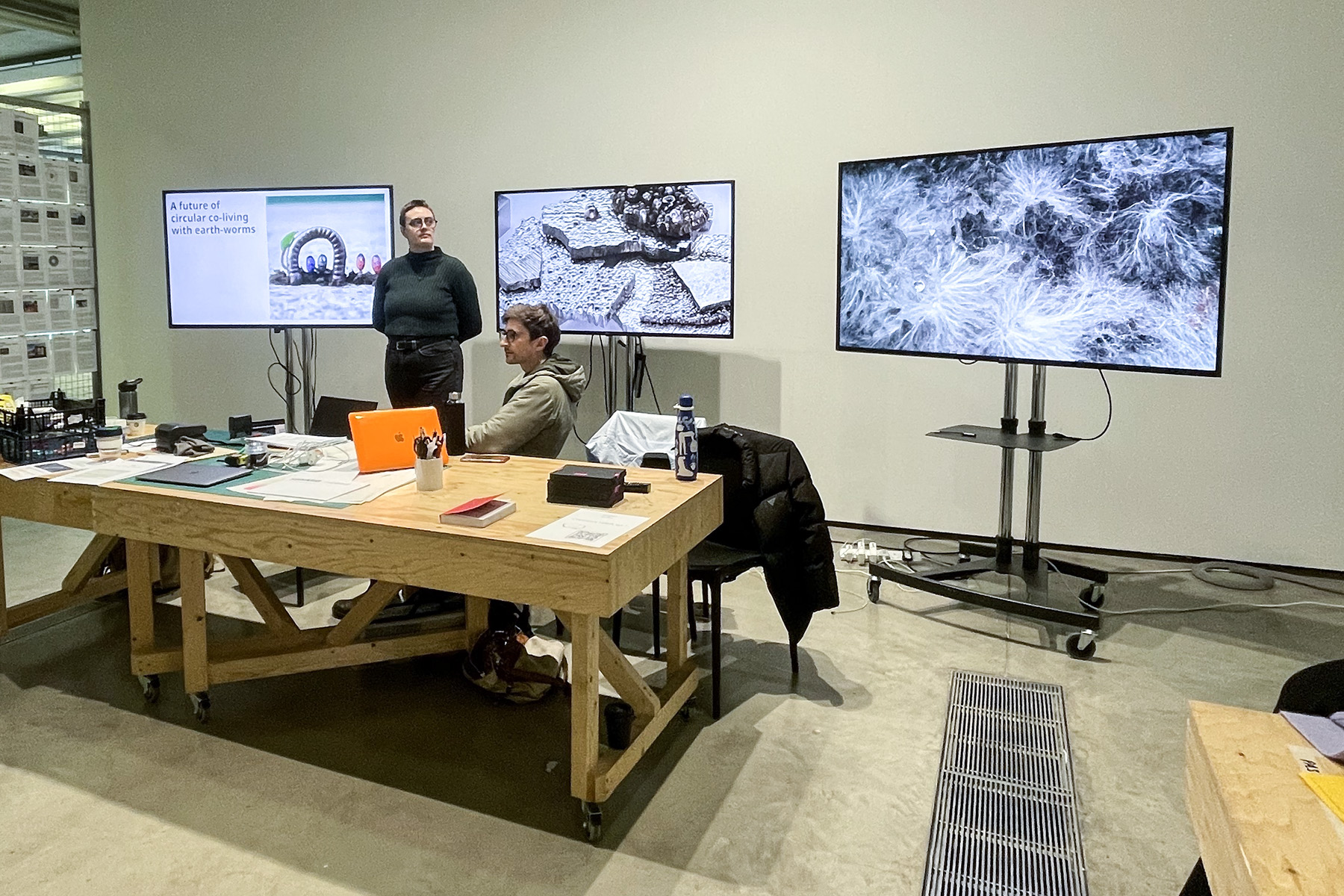
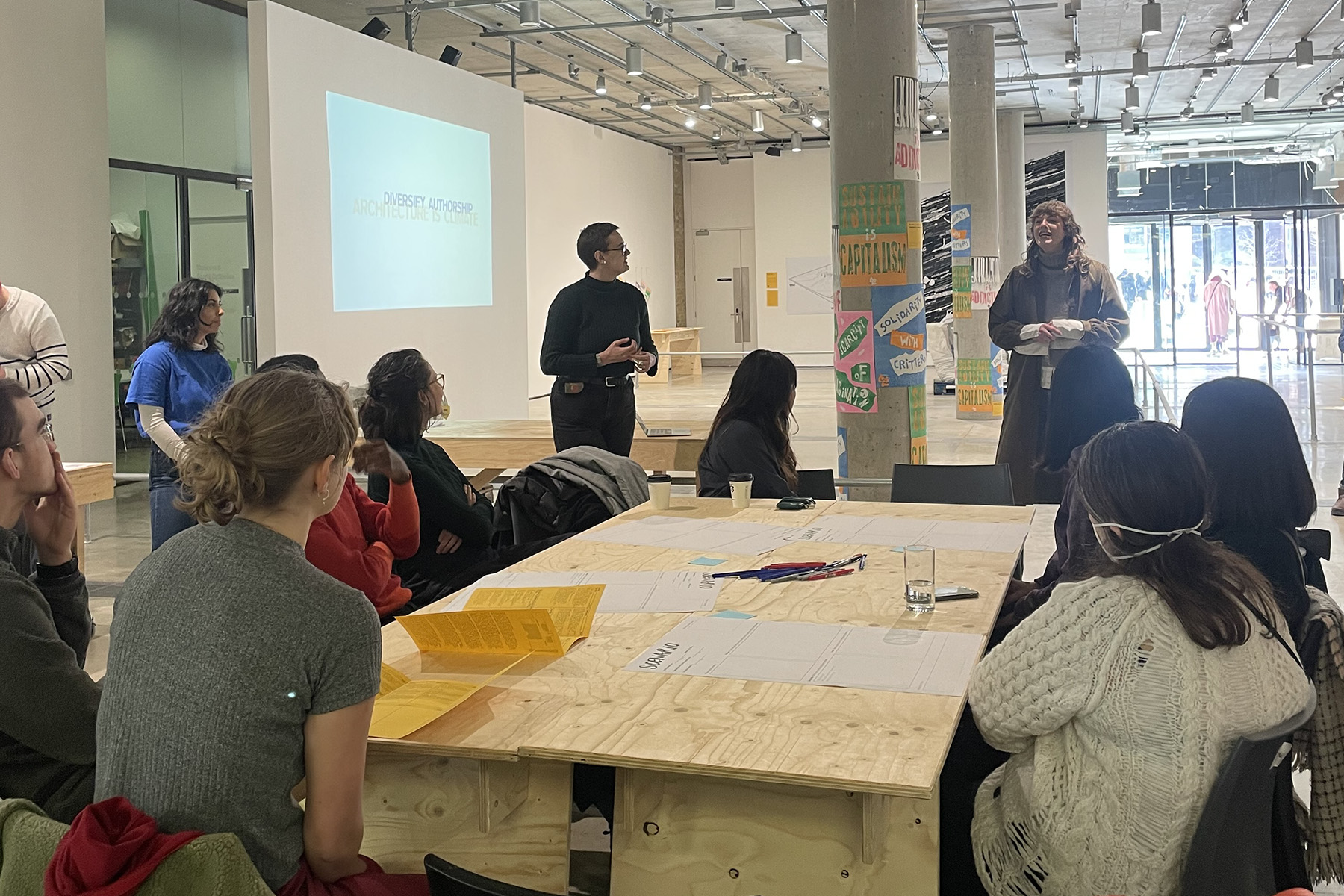

Reimagining the Future of Networks: Workshops
To explore the future of networks in King’s Cross, we designed a workshop to guide participants through a series of fun activities that stretched the imagination to King’s Cross in 2050. We centred our activities around the following questions: What might the infrastructure of networks look like? What sort of communication might they facilitate? Who (or what) might these networks be connecting? What form of new networks could enable a thriving, equitable and regenerative King’s Cross?During the workshop, participants were placed into small groups, with each group given four cards to help frame and kick-start their ideas for the future. They received one card from four different prompts categories: networks (healthcare network, local transport network, food network, international transport network, education network), nodes specific to each network, non-extractive materials with a description of their specific properties, and a city context (15-minute city, multispecies city, open city, fab city, and mega mega city). With the help of the cards they received, each group was asked to think about how their network could be reimagined, what would be the story of their reimagined network, and what would be the name of their future.
Once participants imagined and described their future network, we used what they defined as prompts to create an ai-generated ‘snapshot’ of their future, and to help make their vision more tangible.
Legacy of the workshop
We printed posters out of every scenario developed by our participants and left the below A5 booklet in the space, alongside the same printed A3 posters that participants could take with them.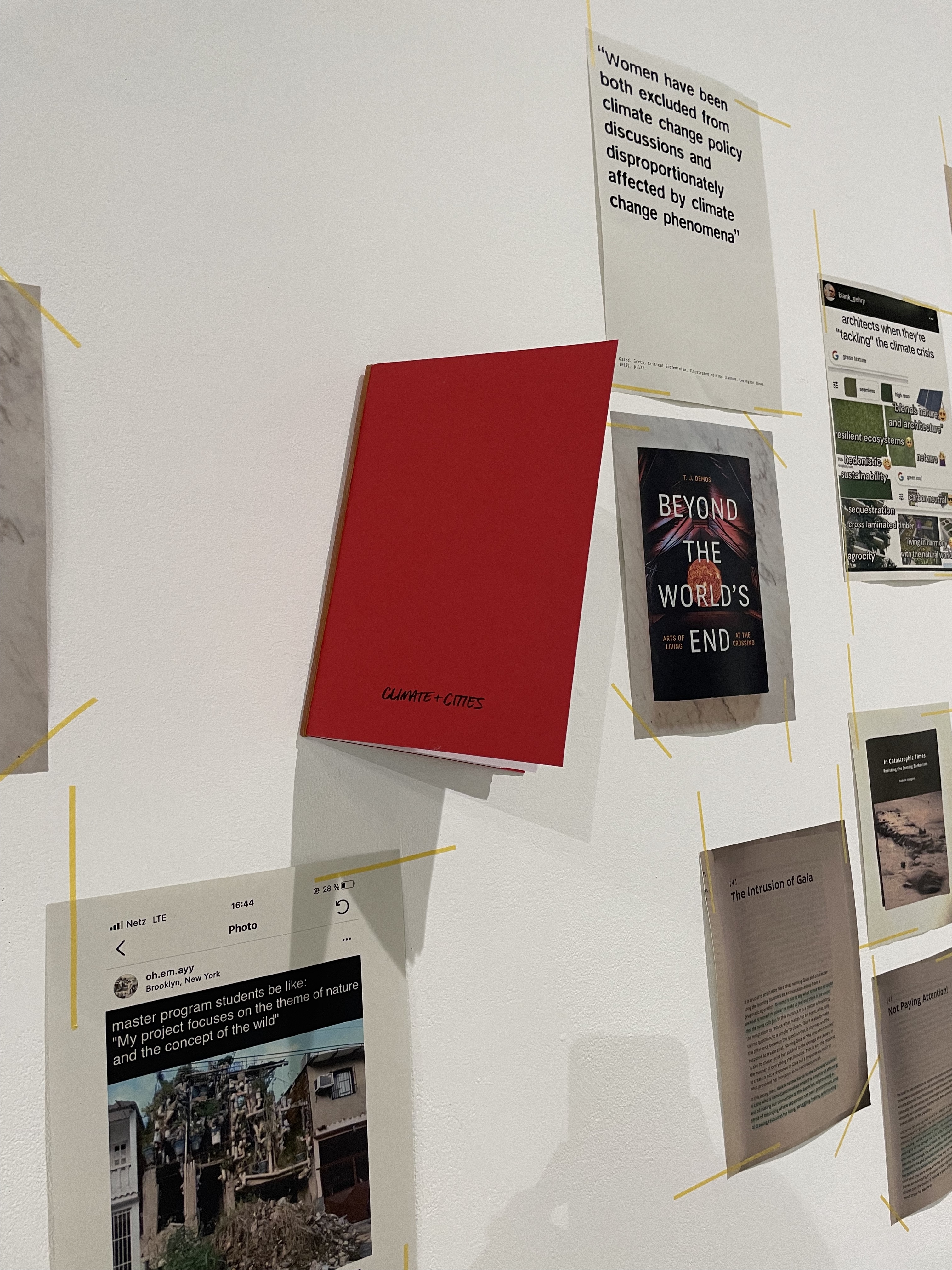
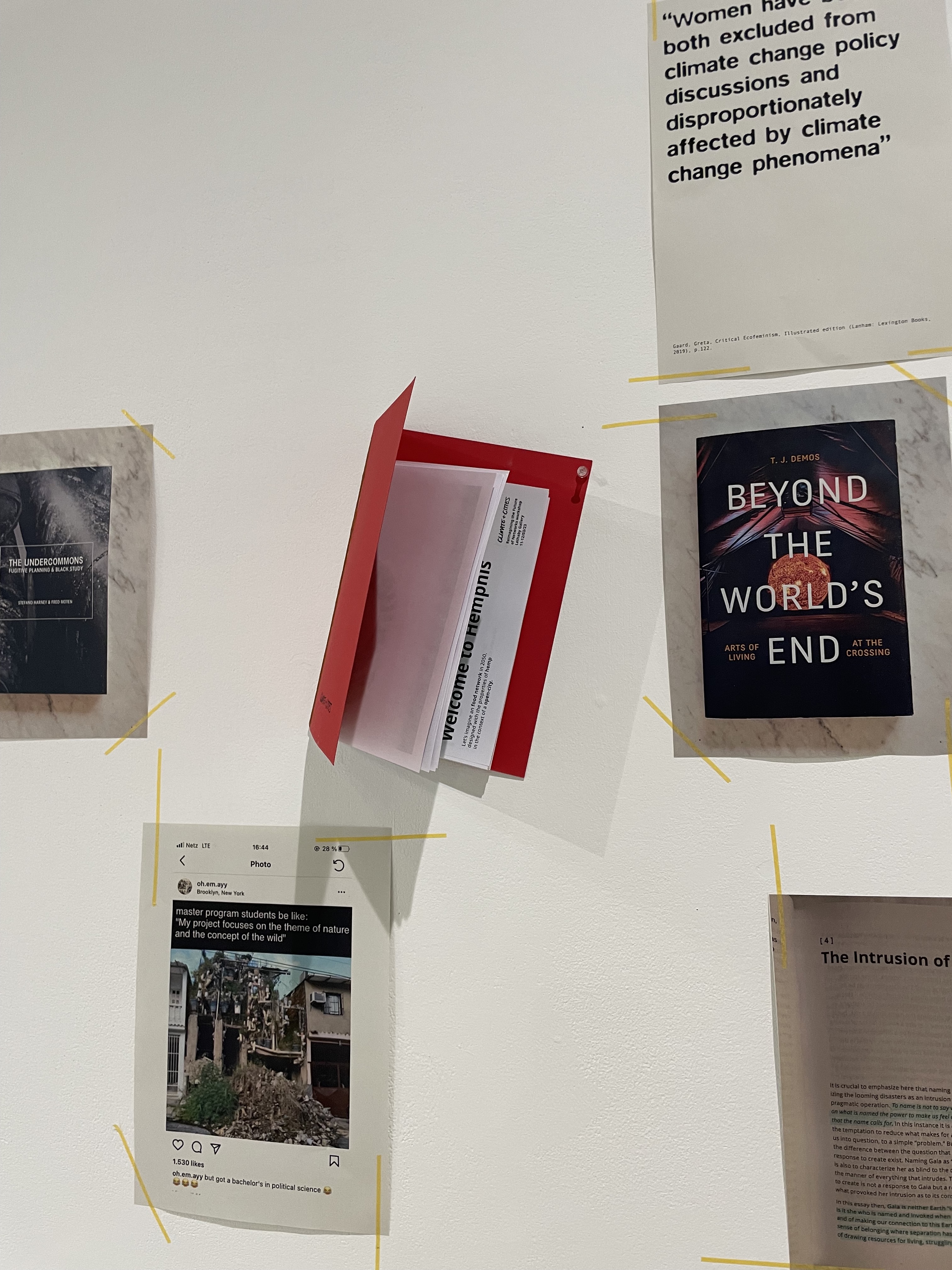
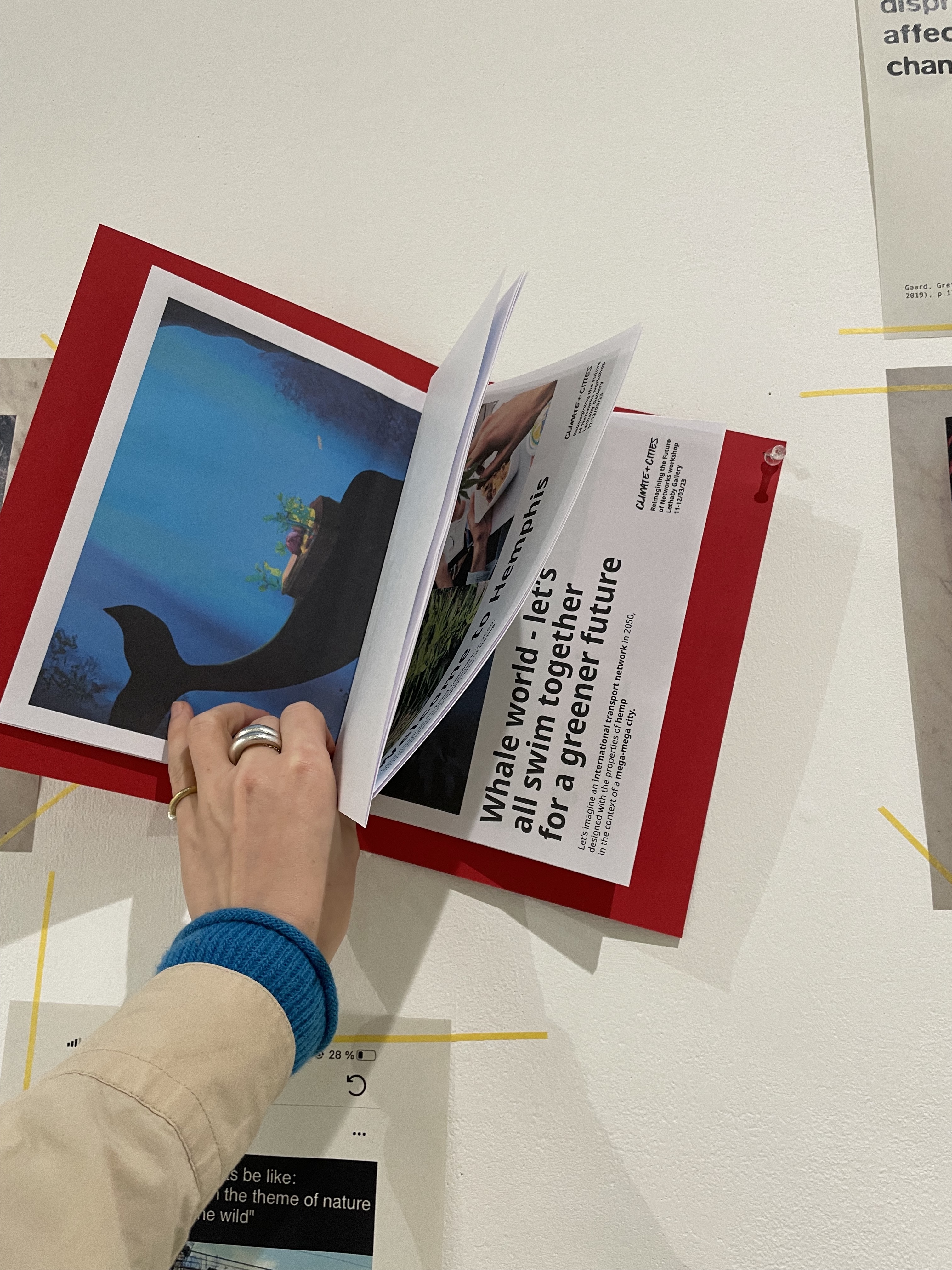
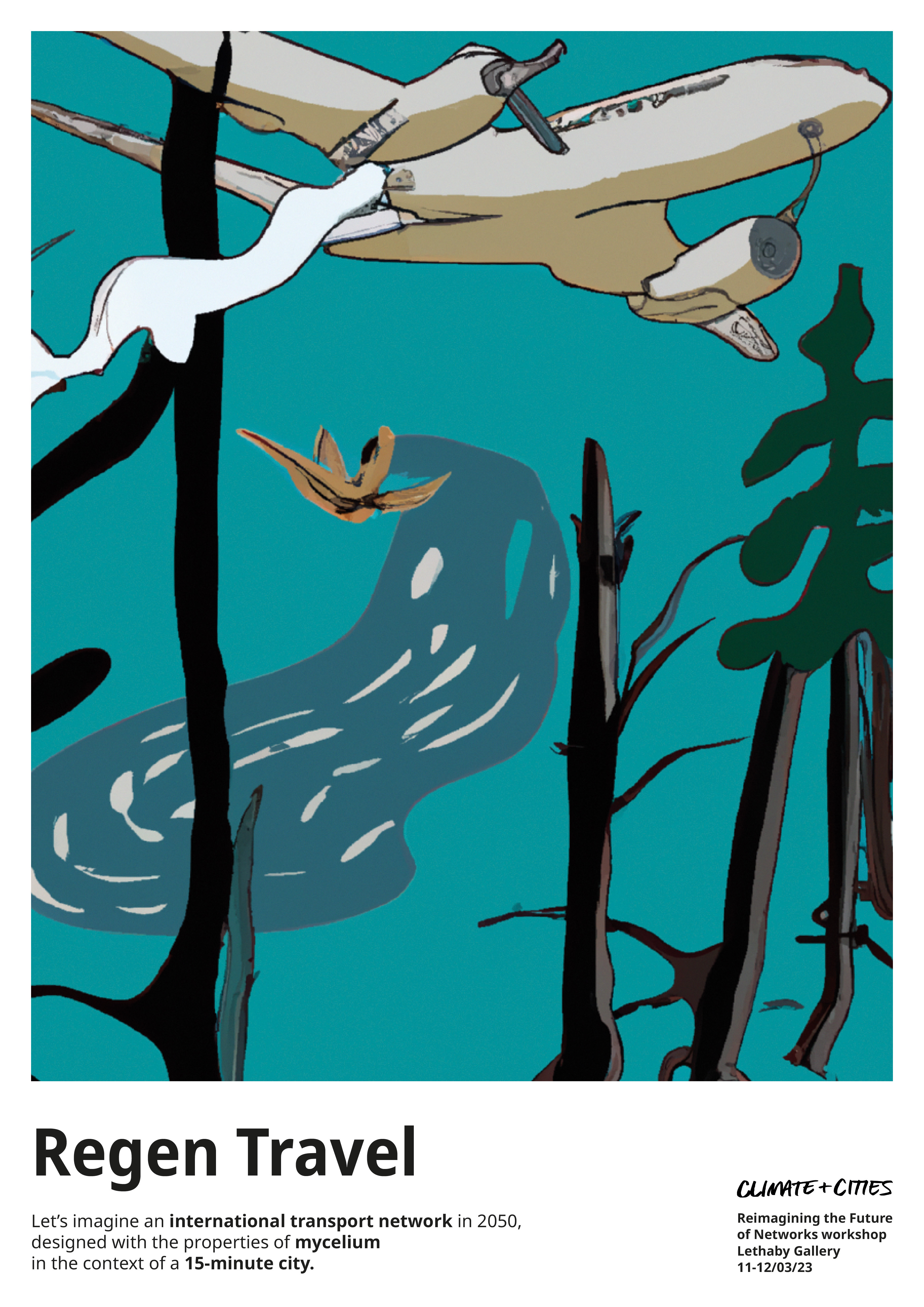
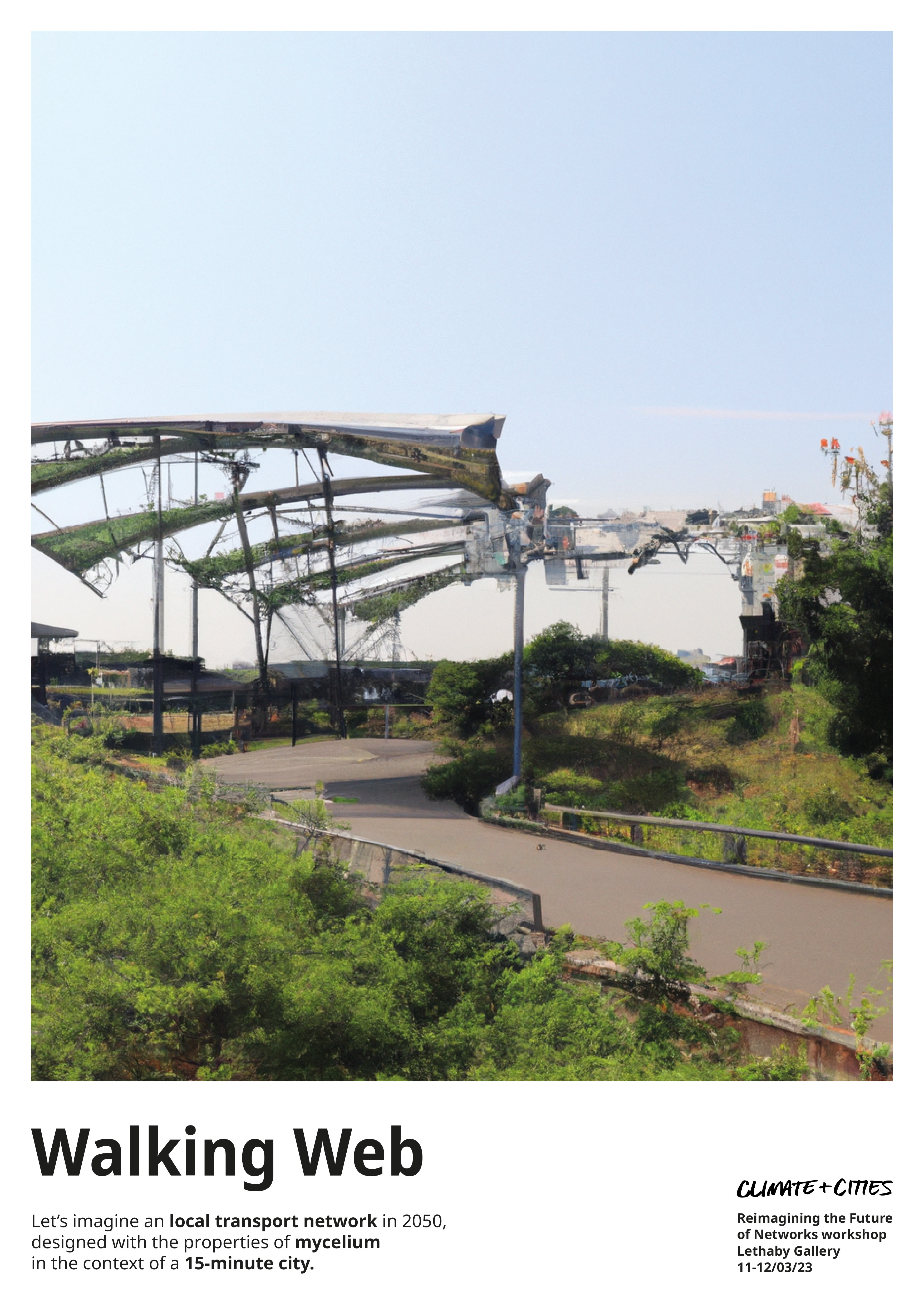
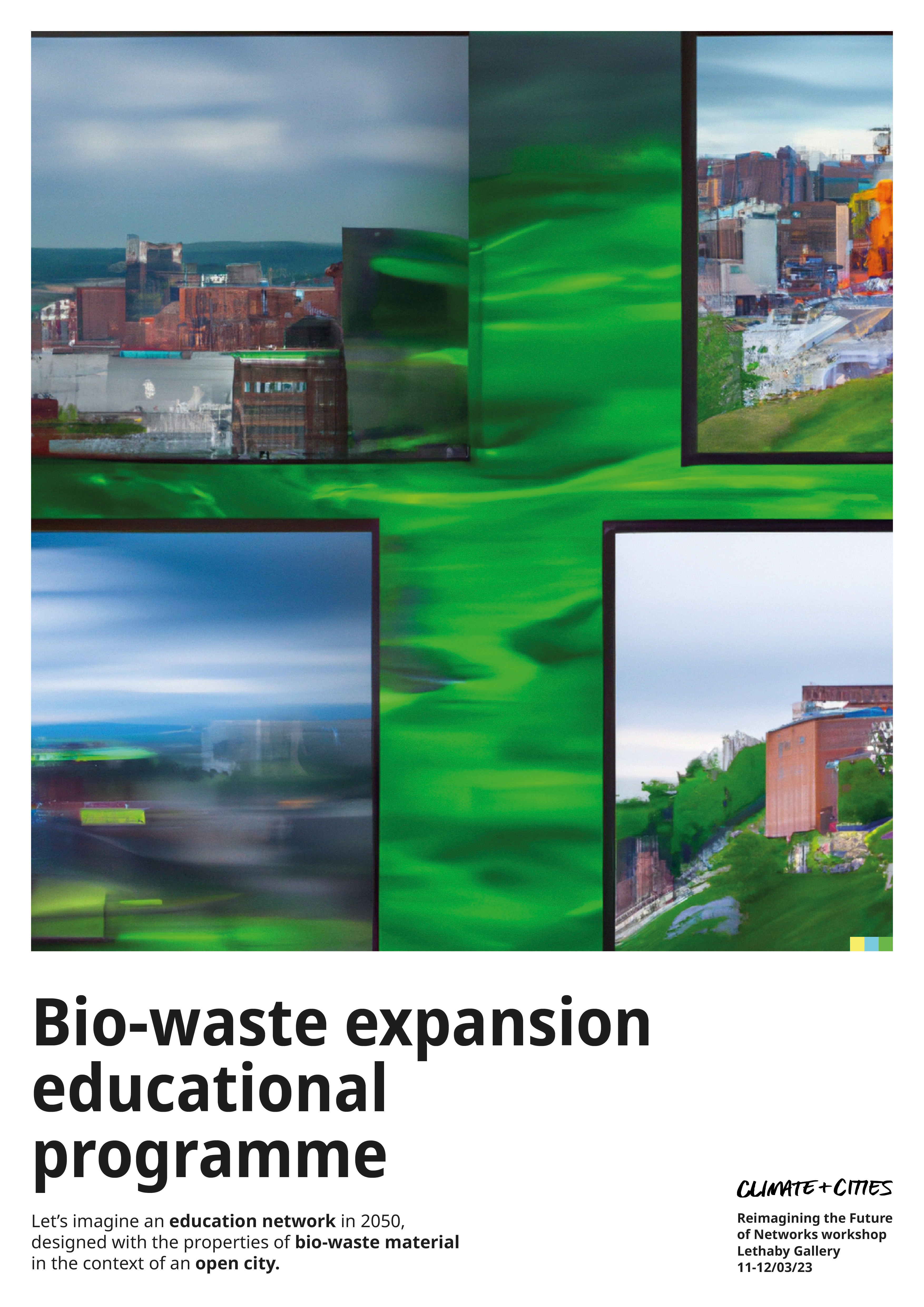
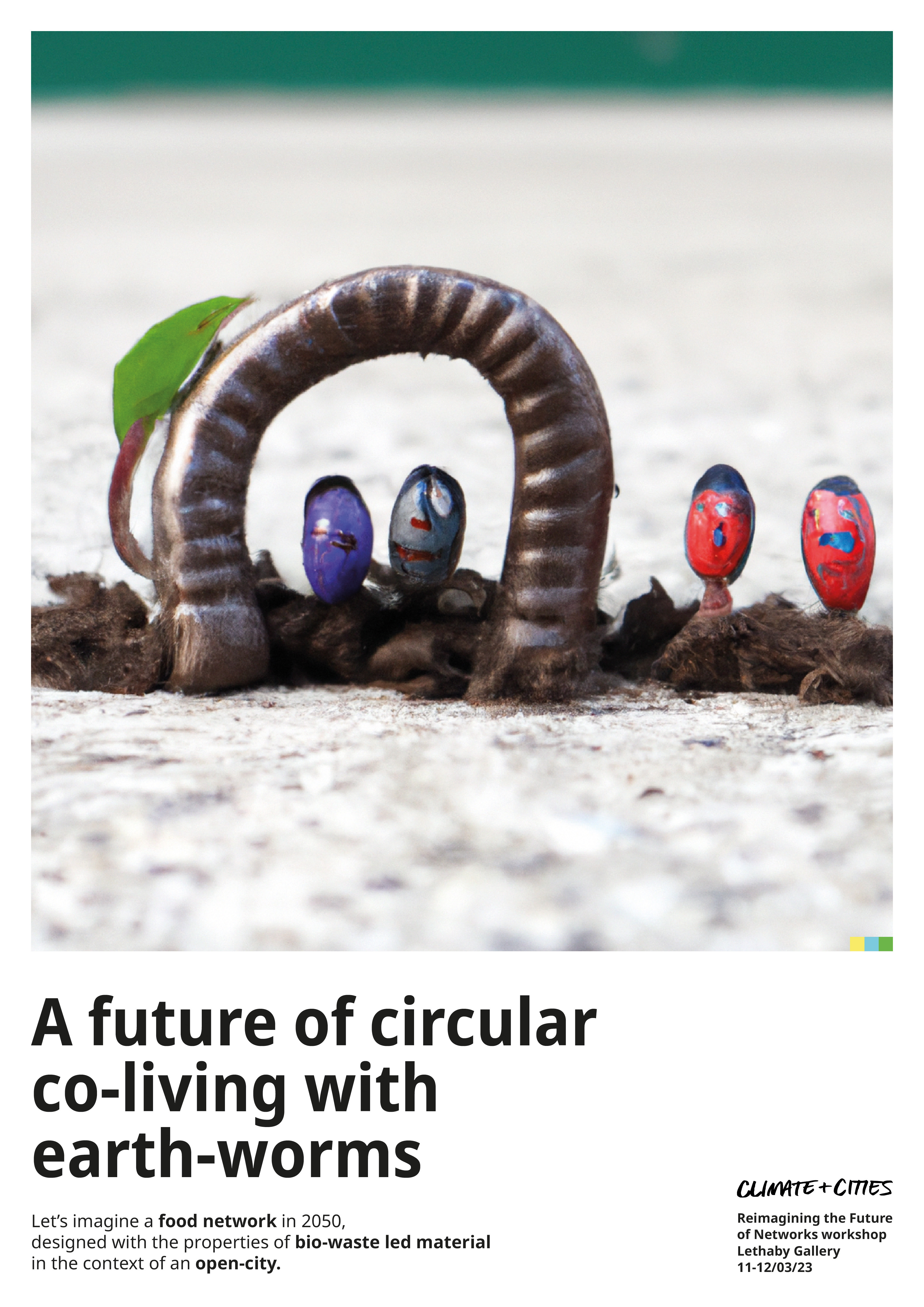
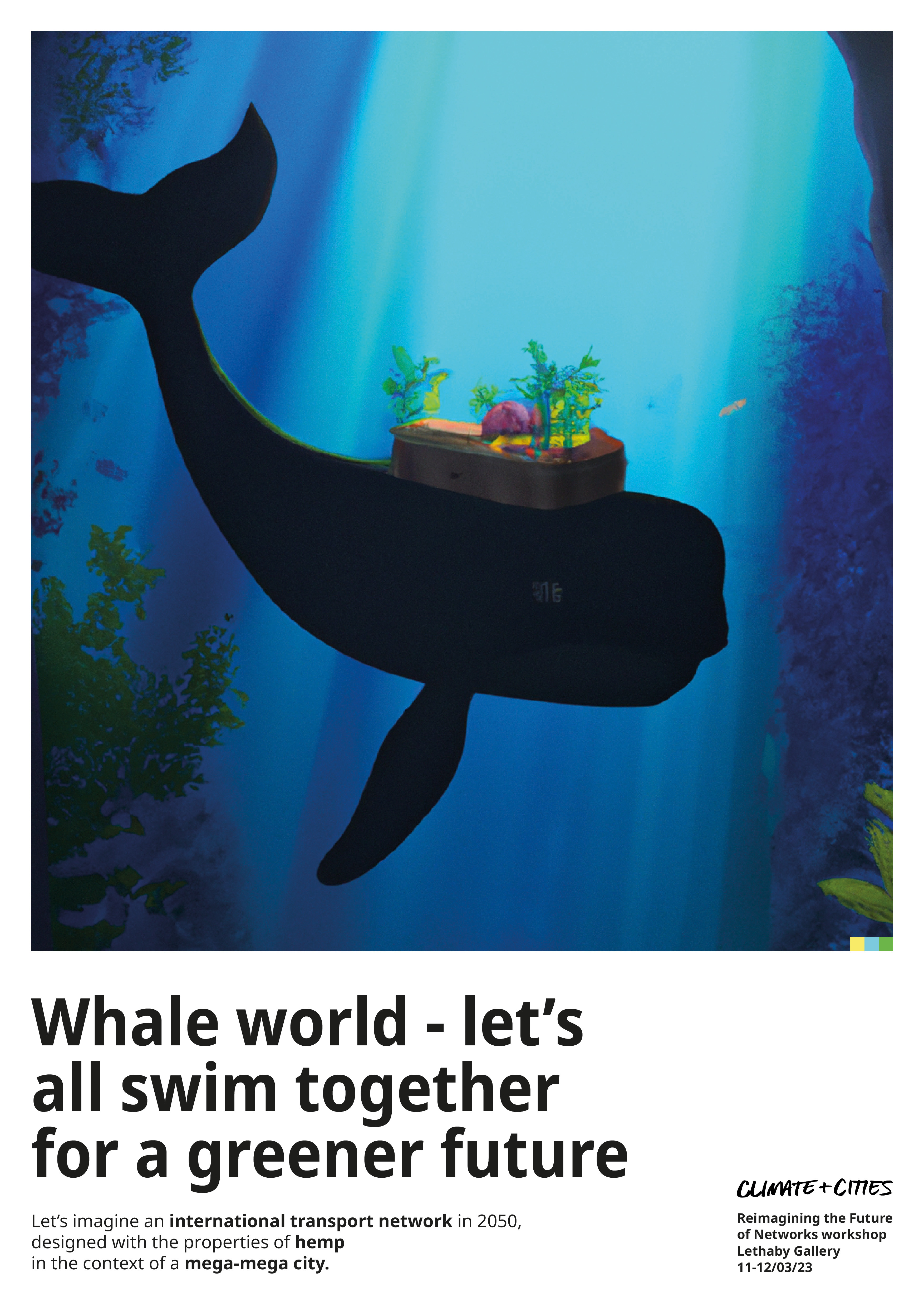
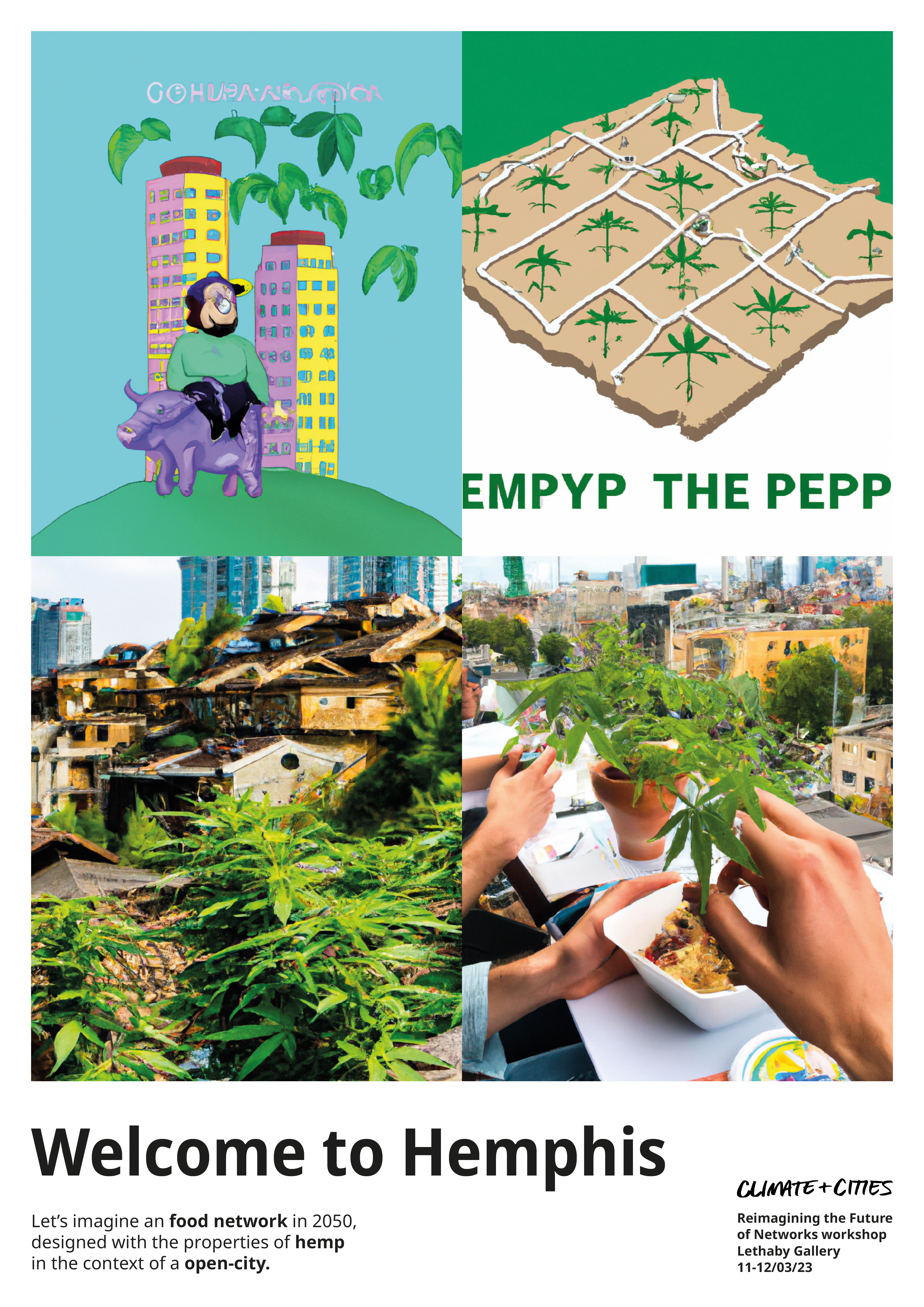
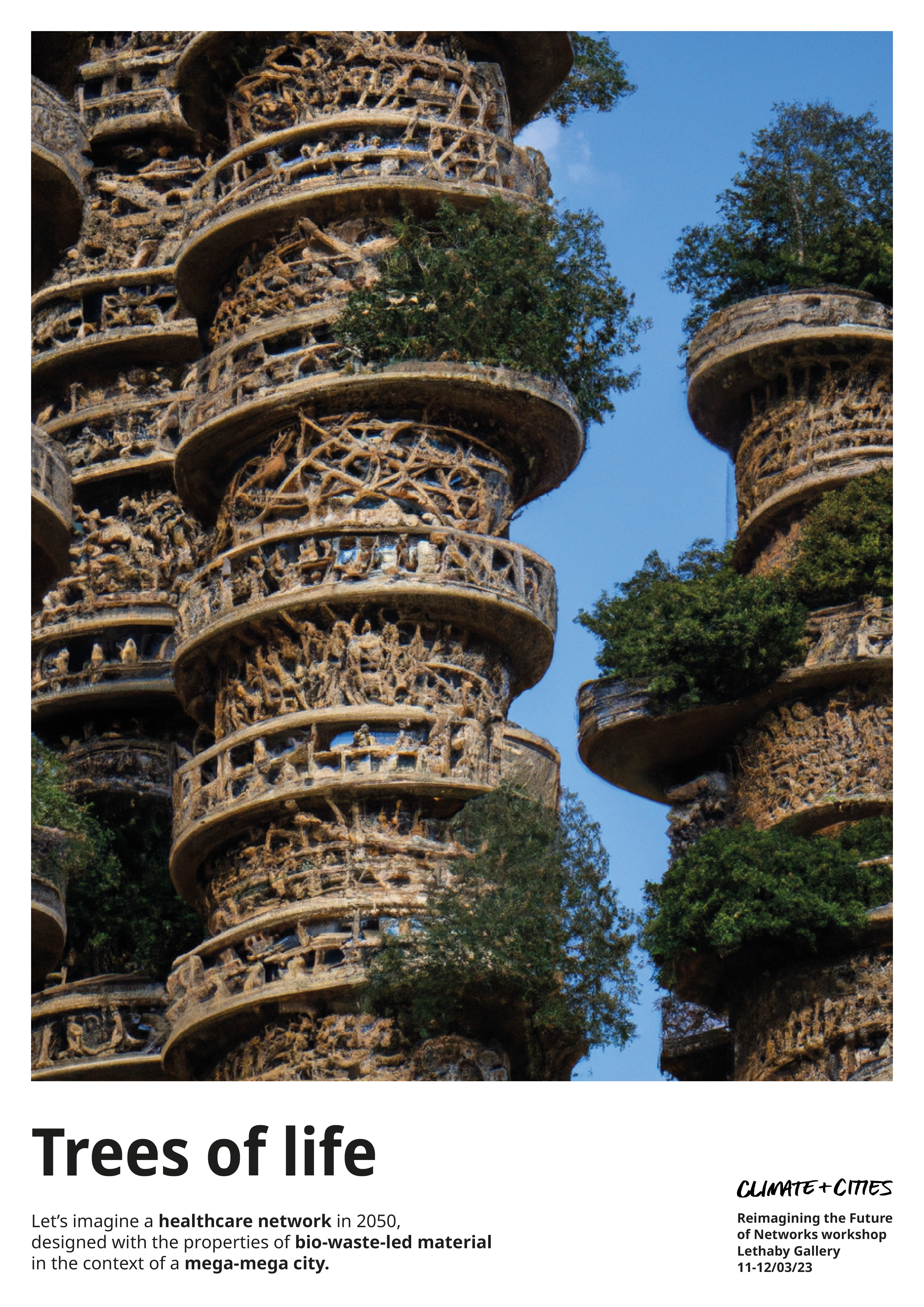
Team:
Workshop design and facilitation: Léa Silvestrucci, Milly Shotter, Sepideh NoohiSpatial design and Research: Rebecca Lardeur, Alexander Taylor, Kshitija Mruthyunjaya
Communication intern: Hannah Reznik
Instagram - Linkedin - Medium - Email us